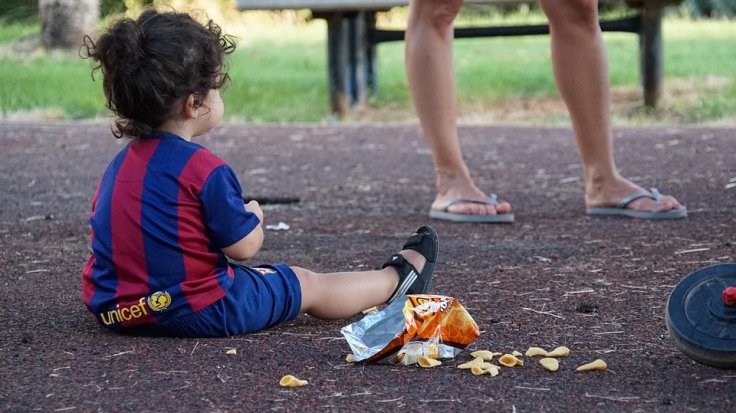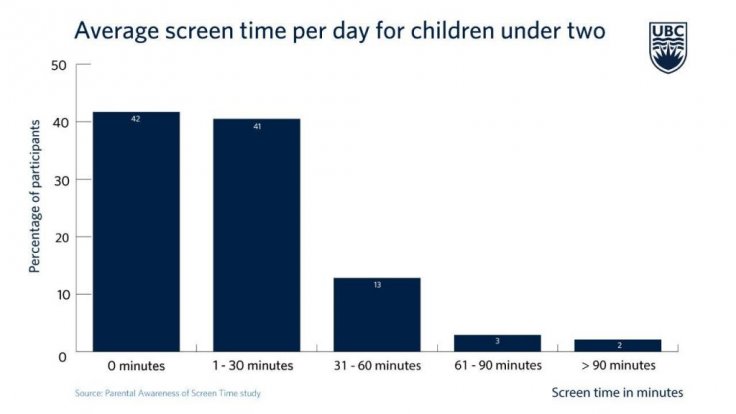
Nurses in Canadian hospitals were shocked when parents tried to stop their kids from crying after a vaccine shot. Instead of cuddling them, most of the parents flashed their smartphones to distract the toddlers from the pain.
A study of 242 parents of children under two years of age surveyed at community centers of Vancouver showed that half of them allow toddlers to use smartphones or tablets, ignoring the guidelines of the Canadian Pediatric Society which recommends against it for children aged two and under.
The survey, conducted by a team of nurses under UBC nursing professor Wendy Hall, found that 42 percent of the parents did not allow their children any screen time, while 40.5 percent allowed up to 30 minutes per day, and the remaining 17.5 percent gave them an hour or more per day. Here's the graph:

"We noticed in our practice that we were seeing a lot of use of screens in younger kids," said Reda Wilkes, co-author and one of the staffers with Vancouver Coastal Health. "During vaccination clinics, instead of holding their child and cuddling them when they got pain after a shot, they would be flashing their smartphone in front of them to try and distract them with a video," she said wryly.
The reasons cited by parents included the time required to complete household chores, coping with a busy workday, and the belief that it would help children to improve their speech and language. But several studies have found that more screen time interferes with the natural development of a young child's language development.
"There's nothing to support it. Young kids are supposed to be constantly moving and when you put them in front of the TV, that just stops," said Wilkes. Moreover, toddlers who spend longer time on screens end up with inadequate amounts of sleep, she said, recommending against the use of screens to keep toddlers busy with gadgets instead of growing naturally and playing around.







